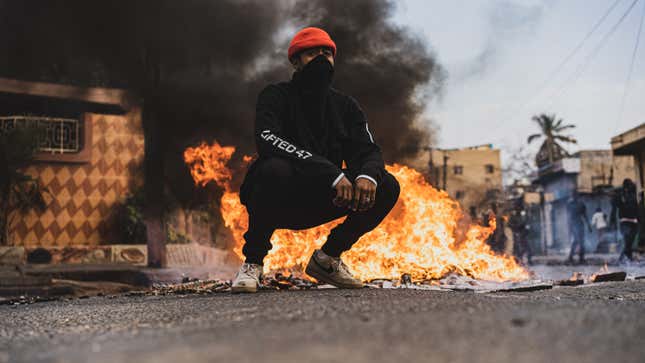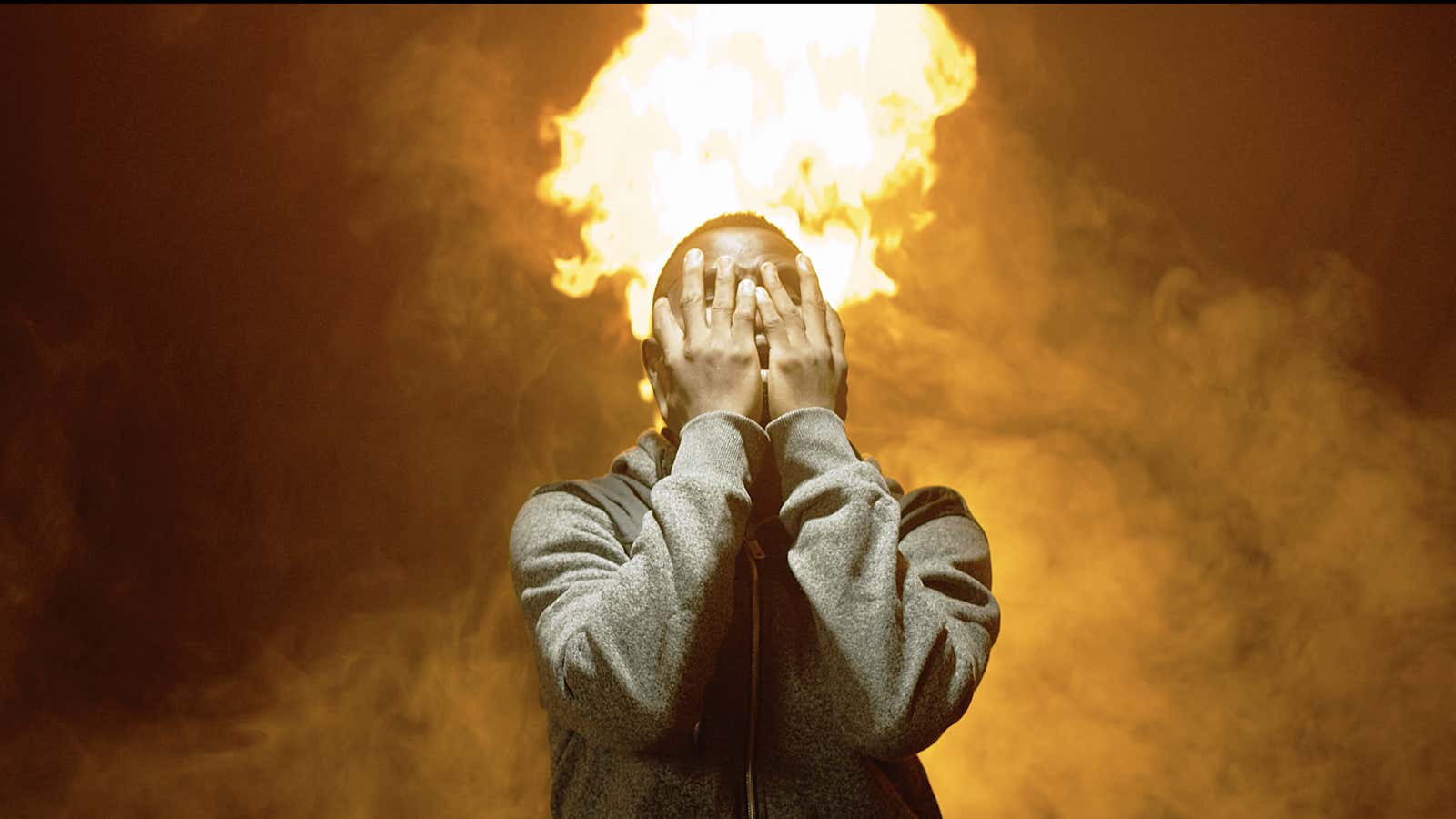Two months before the deadly protests that broke out in Senegal, 29-year-old rapper Hakill wrote a song about how fed up his generation was with the government.
“They show contempt and look down on us from high. We never see actions, only words,” reads his song titled “Fii,” meaning “Here” in Wolof. It goes on to describe living in poverty, and “choosing between lunch and dinner,” while dreaming of a life of luxury that the president and his family enjoy.
“To sum it up,” Hakill sings, “we have nothing left to lose.”
The song was meant to come out on Hakill’s next album in June, but he decided to release it early after youth took to the streets this month in the biggest protests the west African country has seen in years. His lyrics were prescient.
The #FreeSenegal movement, as it has been dubbed on social media, may have come as a surprise to some. Senegal has long been viewed as a beacon of peace and stability in the region. The protests, which left more than eight dead in clashes with police, were sparked by the arrest of popular opposition leader Ousmane Sonko on charges of rape.
But to many Senegalese, the protest action was a long time coming. In songs written both before and after Sonko’s arrest, the country’s top rappers have vocalized the feelings of the youth, offering insight into what drove them into the streets and why the situation escalated.
“Senegalese have been holding frustration inside them for a long time,” Hakill, whose real name is Ibrahima Ndiaye, told Quartz Africa. “If the youth went to protest, it’s because this was the last drop that made the cup overflow.”

Growing anger
Senegal’s rappers were quick to lend their voices to the movement, which has seen a coalition of activists and pro-democracy groups come together to demand the release of political prisoners and an investigation into the deaths of protesters, among other actions. #FreeSenegal by Dip Doundou Guiss, “Khekh Yu Bess” (“A new type of combat”) by Canabasse, and Bayil Mu Sedd (“Drop it”) by rap duo Positive Black Soul are among the popular protest songs making the rounds on social media. All of them speak directly to president Macky Sall.
“What to do with a country that can’t develop?” raps Dip Doundou Guiss, 29, Senegal’s biggest rapper of the moment. “You sold our oil, and we’re asking for water.”
Like the others, he describes a context in which the poor struggle every day and the rich get richer, where youth feel powerless and ignored. “All these diplomas, but impossible to find a job,” he raps.
Senegal has had one of the fastest-growing economies in Africa in recent years, but most people have not felt the benefits. Unemployment in Senegal stood at 17% at the end of 2019, and the coronavirus pandemic has worsened it. More than one-third of the population lives in poverty, a figure which has decreased only modestly in the last decade. A 2019 study found that 1% of West Africans owned more than everyone else in the region combined.
“Water and electricity bills have become big charges,” Dominique Preira, a.k.a Dip Doundou Guiss, wrote in a song in November. “A house submerged in water, that’s our daily life.”
Many of the songs reference young people taking boats to sea. Migration on the perilous ocean route to the Canary Islands, an entry point to Europe, jumped nine-fold in 2020, driven by coronavirus-linked economic hardship and depleting fish stocks.
“All your promises seem to sink along with our pirogues,” raps Hakill.
In November, young people started a hashtag called “Senegal in mourning,” after a reported 480 people died at sea in two weeks. President Sall offered his condolences in a tweet but did not give a speech at the time, which many youth interpreted as a sign of indifference.
Sall did address the nation last week, telling protesters that he understood why they were angry and pledging more funding for employment and entrepreneurship. But many felt it was too little, too late.
Senegal’s rappers push for change
Senegal has a tradition of rappers pushing for political change. Ten years ago the group Y’en a Marre (“Enough”) was instrumental in mobilizing young voters against then-president Abdoulaye Wade when he bid for a controversial third term.
Riding a wave of popular support, Sall defeated Wade in 2012, and promised to be a president of the people. Now the youth who voted him in worry he may follow the same playbook as his predecessor, and refuse to step down when his two terms are up in 2024. (Sall hasn’t said whether he will seek a third term.)
“History repeats itself,” raps Canabasse in “Khekh Yu Bess.” “We believed in you Macky Sall, but now it’s us against you.”
Such times require music to go beyond entertainment, he said, describing his goal as “relaying what the youth are thinking, their doubts about the future and their need to be taken seriously.”
“I believe that artists are supposed to be the voice of the unheard,” said Canabasse, whose real name is Abdou Basse Dia.
Although street protests have died down since last week, tensions remain, and the songs suggest that this is just the beginning of a fight. While the songs are sung in Wolof, many of the artists have included subtitles in French or English on YouTube so their message can be heard far and wide.
“That was the goal, said Dip Doundou Guiss, “so everyone at the international level would understand what’s happening in our country.”
Sign up to the Quartz Africa Weekly Brief here for news and analysis on African business, tech, and innovation in your inbox.
